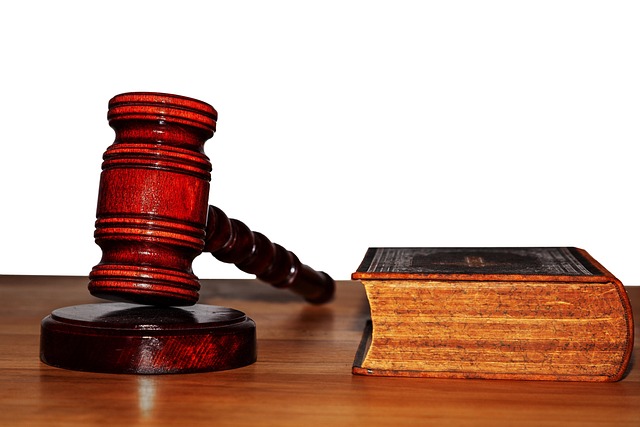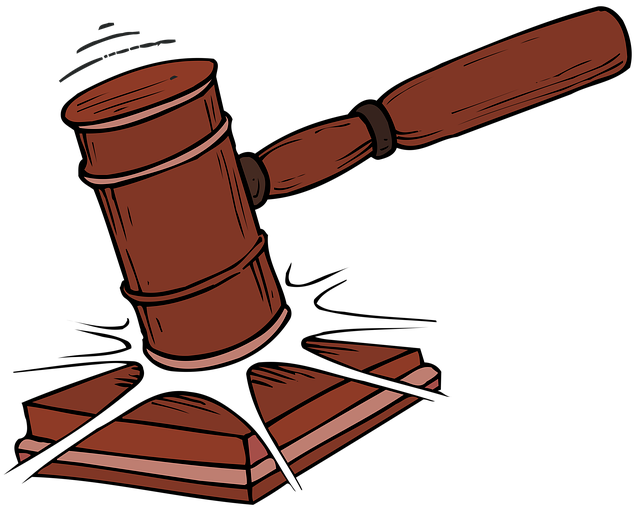Antitrust violation cases are governed by strict laws like the Sherman and Clayton Acts, which prohibit practices harming economic growth. Successfully defending against these charges relies heavily on understanding and utilizing various types of evidence in criminal prosecutions. These include financial records, internal communications, expert testimony, witness accounts, econometric models, industry reports, and historical data. Direct and circumstantial evidence are both crucial; direct proof like agreements is clear, while circumstantial evidence analyzes market dynamics to infer anti-competitive behaviors. Skilled attorneys use this evidence to challenge narratives, demonstrating legitimate business strategies. Notable case studies like United States v. Intel Corp. and United States v. Microsoft Corp. highlight the importance of robust evidentiary strategies in navigating complex antitrust violations and achieving favorable outcomes.
Antitrust violation cases play a critical role in maintaining fair market competition. This article delves into the legal framework governing these cases, focusing on understanding key concepts and the importance of evidence in criminal prosecutions. We explore different types of evidence used to uncover market behavior and intent, highlighting the distinction between direct and circumstantial proof. Additionally, we present common methods for gathering and presenting antitrust evidence, supported by notable case studies that demonstrate the significant impact of successful prosecutions.
- Understanding Antitrust Violation Cases: The Legal Framework
- Types of Evidence: Uncovering Market Behavior and Intent
- Direct vs. Circumstantial Proof in Antitrust Prosecutions
- Common Methods for Gathering and Presenting Antitrust Evidence
- Case Studies: Notable Antitrust Violation Trials and Their Impact
Understanding Antitrust Violation Cases: The Legal Framework

Antitrust violation cases are governed by a robust legal framework designed to promote fair competition in the marketplace. These cases primarily revolve around preventing businesses from engaging in practices that restrict trade or stifle economic growth. The primary laws governing antitrust include the Sherman Antitrust Act, Clayton Antitrust Act, and the Hart-Scott-Rodino Act. Each of these statutes outlines specific behaviors deemed unlawful, such as price fixing, market allocation, and mergers that substantially lessen competition.
In criminal prosecutions for antitrust violations, understanding the types of evidence used is crucial for crafting a winning challenging defense verdict. Evidence may include financial records, internal company communications, expert testimony on industry standards, and even witness accounts of anti-competitive conduct. An unprecedented track record in handling such cases can significantly influence the outcome of jury trials, where the presentation of compelling evidence and a robust legal argument can determine the future of businesses and their leaders.
Types of Evidence: Uncovering Market Behavior and Intent

In criminal prosecutions for antitrust violations, uncovering the types of evidence that shed light on both market behavior and intent is paramount. This involves a meticulous examination of various factors such as pricing patterns, market share dynamics, and competitive interactions. Econometric models, industry reports, and historical data play significant roles in demonstrating anti-competitive practices like price fixing, market division, or monopolization. These quantitative tools help establish patterns that might not be immediately apparent, providing crucial insights for both prosecutors and defenders.
Furthermore, direct evidence of conspiratorial meetings, communications, or agreements is highly sought after. Email exchanges, phone records, and witness testimonies can paint a compelling picture of collusion. In white-collar and economic crimes cases, where intent is often at the heart of the prosecution’s argument, winning challenging defense verdicts hinges on presenting a robust case that counteracts any inference of malicious intent. Effective strategies include scrutinizing the context surrounding decisions, examining alternative explanations for apparent anti-competitive behaviors, and leveraging expert testimony to challenge the interpretation of evidence.
Direct vs. Circumstantial Proof in Antitrust Prosecutions

In antitrust violation cases, proving collusion or anti-competitive behavior can be challenging. The distinction between direct and circumstantial evidence plays a significant role in such prosecutions. Direct proof involves clear and concrete evidence that directly establishes the alleged anticompetitive act. This could include documented conversations, agreements, or actions taken by defendants that explicitly demonstrate price fixing, market division, or other anti-competitive practices. On the other hand, circumstantial evidence relies on inferences drawn from a range of indirect factors to suggest illegal behavior. Market share analysis, industry trends, and the actions of competitors are examples of circumstantial proof used to build a case against companies accused of antitrust violations.
While direct evidence provides a more straightforward route to conviction, circumstantial cases can also lead to successful prosecutions. For his clients facing such charges, a robust general criminal defense strategy is crucial. Across the country, experienced legal teams employ various types of evidence—both direct and circumstantial—to challenge the government’s case, ensuring that businesses are protected against unjust accusations and unlawful antitrust violations.
Common Methods for Gathering and Presenting Antitrust Evidence

In antitrust violation cases, gathering and presenting compelling evidence is paramount for a successful outcome. The process involves meticulous documentation and analysis of various types of evidence used in criminal prosecution. These can include financial records, contracts, communications between parties, market studies, and expert witness testimony. By examining these documents, prosecutors can uncover anti-competitive practices such as price fixing, market division, or monopoly formation.
A winning challenging defense verdict often hinges on how effectively this evidence is presented. Skilled general criminal defense attorneys leverage detailed financial analyses, demonstrating that alleged anti-competitive behaviors were not malicious but rather legal business strategies. This approach not only helps in avoiding indictment but also showcases a thorough understanding of the market dynamics at play. Through strategic use of both direct and circumstantial types of evidence, these defenses aim to build a robust case that challenges the prosecution’s narrative.
Case Studies: Notable Antitrust Violation Trials and Their Impact

In the realm of antitrust violations, case studies offer a window into the strategies and outcomes that shape legal precedents. Notable trials like United States v. Intel Corp. (2005) have highlighted the importance of examining market behavior and competitive dynamics. This particular case involved allegations of price-fixing and restraint of trade, where types of evidence used in criminal prosecution included internal company emails, sales data, and expert testimony on industry practices. The outcome was a complete dismissal of all charges for Intel, demonstrating the intricate balance between holding corporations accountable while achieving extraordinary results.
Another significant example is United States v. Microsoft Corp. (1998), which focused on allegations of monopolistic behavior in the software industry. Evidence presented included licensing agreements, market share data, and witness testimonies from former employees. The trial’s impact was profound, leading to a landmark ruling that resulted in structural changes within Microsoft and a redefinition of antitrust enforcement against corporate and individual clients alike. These case studies underscore the critical role of robust evidence and strategic legal arguments in navigating complex antitrust violations.
Antitrust violation cases, complex yet crucial for maintaining fair market competition, rely heavily on robust evidence. Understanding the legal framework, differentiating between direct and circumstantial proof, and employing effective evidence gathering methods are essential components of these prosecutions. By examining real-world case studies, we see how strong Types of Evidence Used in Criminal Prosecution can lead to significant impacts, shaping market dynamics and setting precedents for future cases. This comprehensive exploration highlights the importance of meticulous investigation and legal acumen in navigating antitrust litigation.






